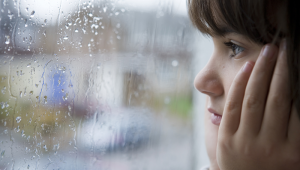Researchers at the think-tank warned that ‘absolute’ child poverty would increase by 4% in the next six years - equivalent to another 400,000 children in poverty.
They stated that the freeze to most working-age benefits means that around 7.5 million low income households will see their benefit entitlements cut by over £500 per year in real terms, in a report out last week.
Tom Waters, research economist at IFS, said: “If the government sticks to planned benefit cuts, it should not be surprised if, according to the official measure, absolute child poverty rises.
“The larger projected rises occur in areas where families with children are more reliant on benefits than earnings for their income, and where more families are likely to be adversely affected by the new two-child limit on means-tested benefits.”
The study, sponsored by the Joseph Rowntree Foundation, is based on forecasts from the Office for Budget Responsibility and current plans to roll out universal credit.
It warned that absolute child poverty - those whose family income is less than 60% of the UK median average - is projected to increase the most in Wales, the North East, the East Midlands and Northern Ireland.
Figures out today show that at August 2017 more than 68,000 families had been affected by the lower benefit cap, which came into effect on 7 November 2016.
Nearly a third of those families are losing between £50 and £100 a week as a result.
Terrie Alafat, Chartered Institute of Housing chief executive, said: “One year after the introduction of the lower benefit cap its worrying effects are very much apparent.
“As a result of this policy thousands of families face a daily struggle to live – in some cases being forced to go without food or heating so that they can pay for their housing, in many others being forced into arrears and put at risk of homelessness.”
The government said it was committed to supporting families while making the welfare system fairer for taxpayers and those who benefit from it.
A UK government spokesman said: “There are 200,000 fewer children living in poverty than in 2010 and we are helping families keep more of what they earn by cutting taxes and increasing the National Living Wage.
“In particular, the North East has near-record levels of employment, and unemployment rate in Wales is the lowest on record.”










